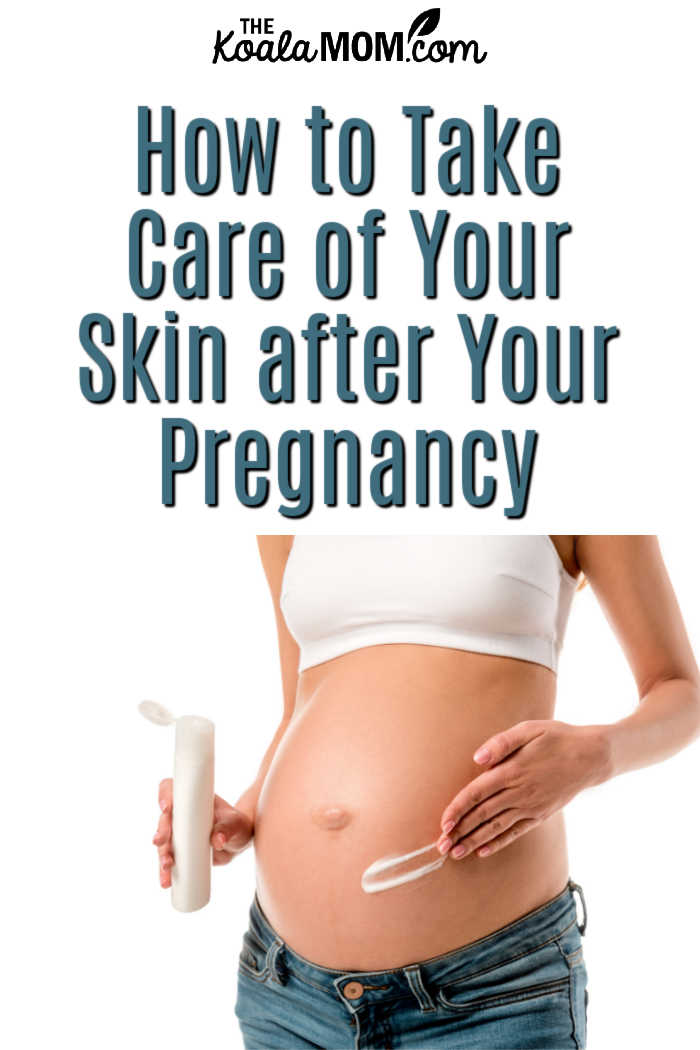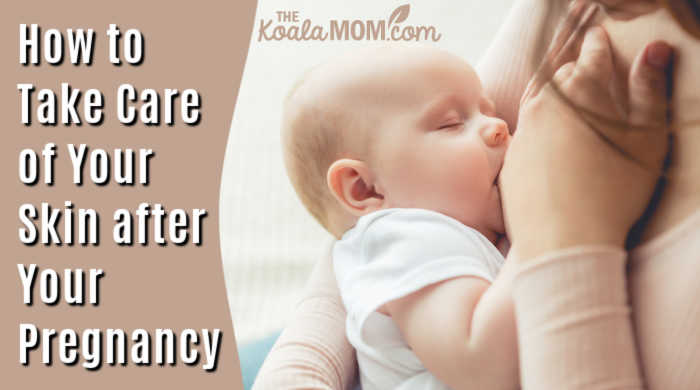During pregnancy, the skin, as the body’s largest organ, goes through a series of changes. What can be characteristic of most pregnant women is lush hair and a glowing complexion. But this is not always the case, which is why it’s important to take care of your skin during and after pregnancy.
Some pregnant women struggle with dry, dehydrated skin prone to flaking. Often, the skin becomes more sensitive to external influences. A feeling of itching can occur, most often in the last trimester of pregnancy, but it is also transient. Certainly, if the itching is intense or long-lasting, it should be reported to the doctor.
On the other hand, there are also those pregnant women whose skin changes go to the other extreme. Their skin becomes oily and prone to acne, especially on the back, décolleté, and face. In some cases, the increased synthesis of melanin leads to hyperpigmentation (melasma), which is why using SPF during pregnancy is important to help prevent this unpleasant phenomenon as much as possible.
Here are some tips you can apply to successfully take care of your skin after your pregnancy.

How to Take Care of Your Skin after Pregnancy
After childbirth, most of the physiological changes in the skin on your face and body that occurred during pregnancy and are related to those pregnancy hormones disappear spontaneously. The resulting pigment changes (hyperpigmentation, melasma, and the dark line on the stomach) slowly recede (fade), so they don’t need to be treated or removed.
Your skin, especially on your face, should still be protected from the sun with skin protection products. Even though the acne caused during pregnancy recedes after you give birth, for clearer skin you should continue to properly clean, care for, and protect your skin with cosmetic and dermo-cosmetic products (purchased at a pharmacy) intended for cleaning, caring for, or protecting acne-prone skin.
While moms are usually focused on our babies immediately after birth (as we should be), we also need to take care of ourselves. Try to give yourself a few minutes each day (when baby naps or your spouse holds the baby) to have a quick shower, put on some lotion, and do something else for yourself. If you can get away for an hour, book a spa session or facial at your local salon. Pamper your body after what it has accomplished in the last 9 months.
How to Tighten Your Stomach
Stretch marks created during pregnancy will not disappear after childbirth, either spontaneously or with the use of cosmetic products. Fortunately, there are various, primarily dermatological, treatments that can alleviate and even solve this aesthetic problem.
One of the new changes that appear on your body after childbirth is the loose skin of the stomach (a “soft stomach”). Although there are various products on the market for tightening the skin of the abdomen (gels, creams, and lotions), there is no need to use them. The skin of the abdomen will spontaneously “tighten” during the first year after giving birth (most often between the seventh and ninth month after giving birth).
Exercise may help tighten your tummy muscles. There are exercise programs designed around specific muscles in your body, so look for ab workouts to help pull those muscles back in. Exercise can also help with other post-pregnancy concerns such as diastasis recti and back pain. Be gentle with yourself; your tummy muscles spent 9 months stretching out to accommodate your baby, so they may take 9 (or more) months to slowly pull back to their previous state.
Are Skincare Products Different If I’m Breastfeeding?
There are different care products for mothers who are not breastfeeding and mothers who are breastfeeding! Mothers who are not breastfeeding their babies can slowly return to the ritual of cleaning, caring for, and beautifying the skin on their faces and bodies that they practiced before pregnancy. On the other hand, breastfeeding moms still have increased skin sensitivity and the possibility of side effects, so you should be careful when applying and changing cosmetic products.
When it comes to body skin care, mothers who breastfeed their babies should keep in mind that when sucking, the baby comes into contact not only with the skin but also with applied cosmetic products (especially in the area of the chest, neckline, neck, stomach, and hands). You may want to look for natural skincare products and be careful with applying products around your stomach and chest. As for anti-aging products, you should still avoid preparations with vitamin A and derivatives of this vitamin during breastfeeding.

Nourish the Skin “From the Inside” with Necessary Nutrients
It should be borne in mind that the condition of the skin depends significantly on nutrition. As with hair, the lack of nutrients—vitamins, minerals, proteins, and essential fatty acids—can significantly affect the appearance of the skin, as well as its integrity and barrier function.
That is why after childbirth and especially during breastfeeding, it is necessary to increase the intake of nutrients that will have an impact on the structure, barrier function, and appearance of the skin—zinc, B6, B12, biotin, vitamins C and E, and the essential (polyunsaturated) fatty acids linoleic (omega -6) and α-linolenic (omega-3).
Specific hormonal, metabolic, and immunological changes, which have an impact on the entire body of the future mother, are to blame for all of this. Fortunately, these changes are reversible, i.e., in most cases, they disappear shortly after pregnancy. So don’t worry, follow our advice, and everything will be fine!
How do you take care of your skin after your pregnancy? What’s your favourite skincare routine or product?

No Responses Yet